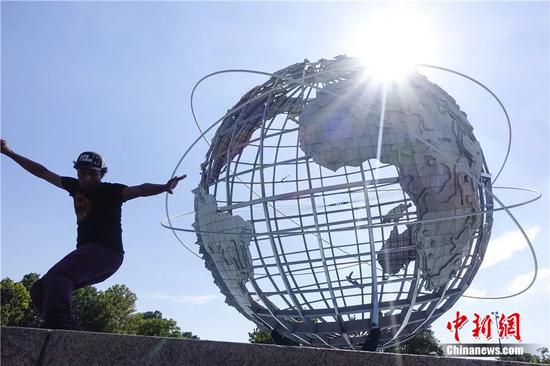
A young man skate in extreme heat at Corona Park, New York in July, 2020 (Photo: China News Service/ Liao Pan)
CNS: Around the globe, the Northern Hemisphere has seen more extreme heat this summer. Many countries in Europe and the western United States have experienced severe heat, with some regions setting new records. What is causing the frequent occurrence of extreme weather around the world? What are the characteristics of global climate change? What are the impacts and hazards of global warming on the global economy and society?
Chao: Global warming is the climatic background for the frequent heat-wave events in the Northern Hemisphere, and atmospheric circulation anomaly has been the direct cause of frequent high-temperature and heat-wave events in many parts of the world since June.
The increased extreme weather and climate events in recent years have been closely related to the broader context of climate warming, which changes the global oceanic and atmospheric circulation situation and further affect the local climate through the interaction between ocean and atmosphere, land and atmosphere. It exacerbates the instability of the climate system and makes it more likely to lead to extreme weather and climate events.
Against the background of global warming, the frequency and intensity of extreme weather and climate events have increased, including extreme heat on land and sea, heavy precipitation events, droughts and fire weather, which cause serious disruptions and damage to social production and order of life, as well as many casualties and property damage. According to the latest assessment results of the Intergovernmental Panel on Climate Change (IPCC), about 10 percent of the global population is affected by the increased extreme precipitation. Since the 1950s, about 4 billion people worldwide have experienced at least one month of severe water shortages each year. Droughts, floods and ocean heat waves have led to reduced food supply and higher food prices, threatening the food security, nutrition and livelihoods of millions of people. In addition, global warming contributes to economic inequality among countries, increasing the risk of armed conflict and involuntary population migration.
Global warming has also led to an increase in extreme events. Disaster losses from extreme events are also on the rise, with an average of one extreme event a day globally over the last 50 years, resulting in an average of 115 deaths and $202 million losses a day.
CNS: Recently, at the Petersburg Climate Dialogue, United Nations Secretary-General Antonio Guterres warned of “collective action or collective suicide”. Is global climate change out of control?
Chao: The newly released IPCC assessment does point out that human activities have caused unprecedented changes in the climate system, with the 50 years since 1970 being the warmest in the last 2,000 years. From 1901 to 2018, the global average sea level rose by 20 centimeters, rising faster than in any century in the last 3,000 years. In 2019 the global concentration of carbon dioxide reached 410 parts per million, the highest in 2 million years. The frequency of extreme weather events is also increasing, with a fivefold increase in the number of extreme-weather disasters and a sevenfold increase in losses over the last 50 years. Some scientists predict that by 2100, more than half of coastal areas could experience a once-in-a-century extreme-sea-level event.
These data all illustrate the unprecedented changes in the global climate system under the influence of human activity. If humans do not take immediate action, climate model calculations show that, according to current global greenhouse gas emissions, global warming compared to pre-industrial era will be between 2.2 and 3.5 degrees Celsius by the end of the century, with a significant increase in the intensity, probability of occurrence, duration and disaster of extreme events, which may bring a lot of irreversible consequences. Therefore, immediate action is needed to address climate change, and human intervention will slow global warming.








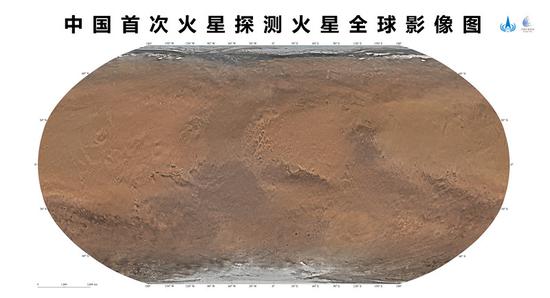




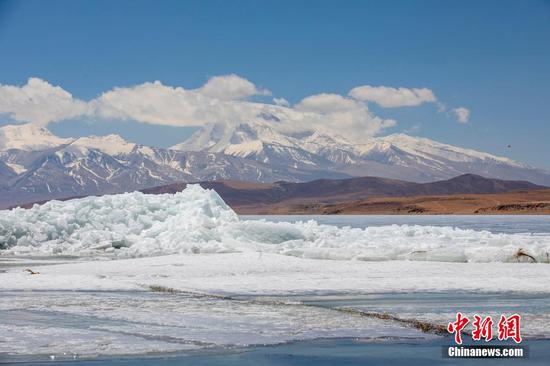







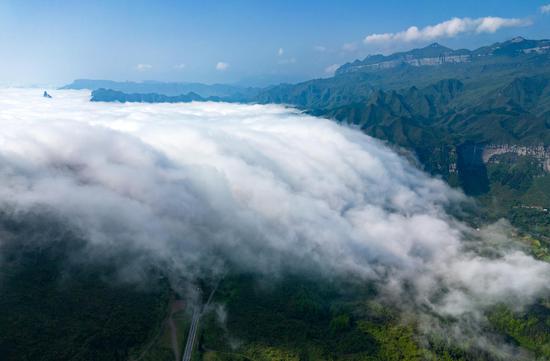
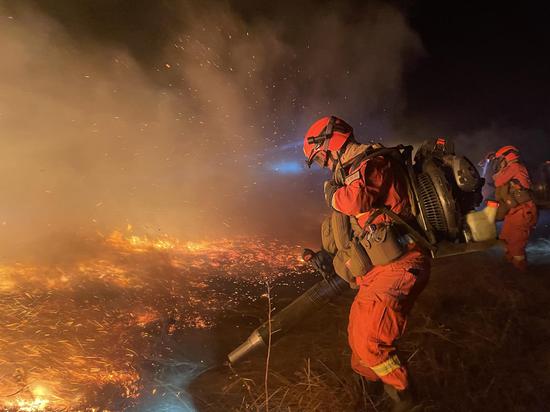
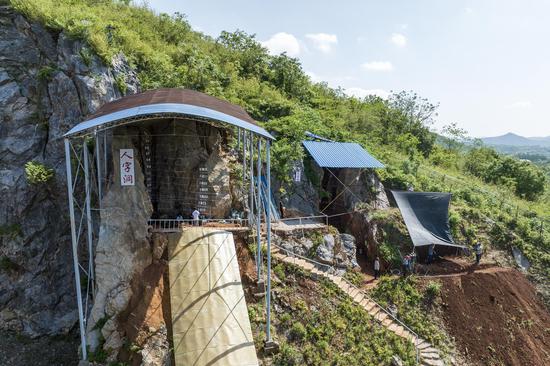



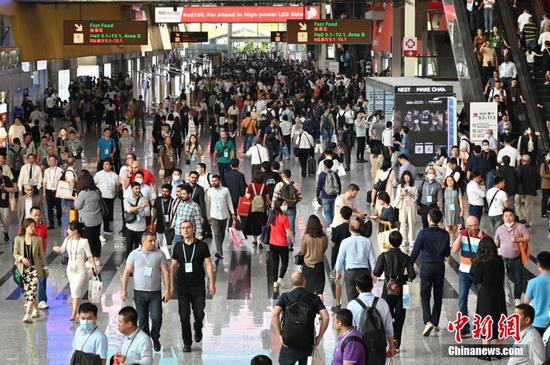
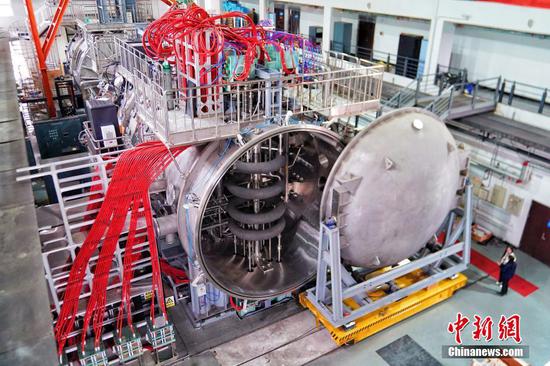







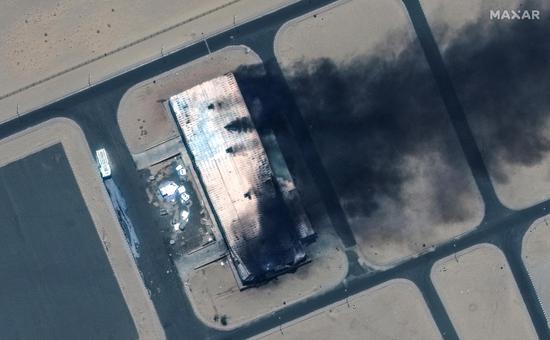

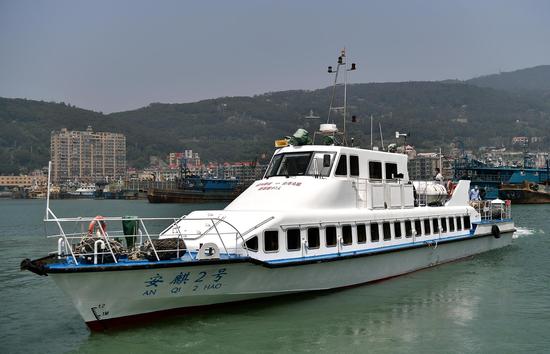
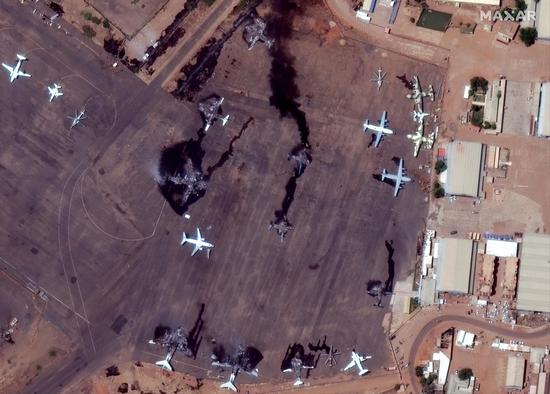



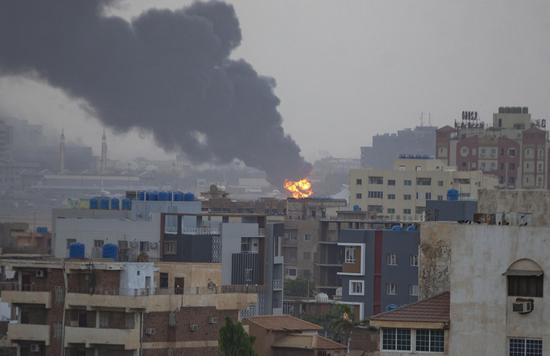






 京公網安備 11010202009201號
京公網安備 11010202009201號